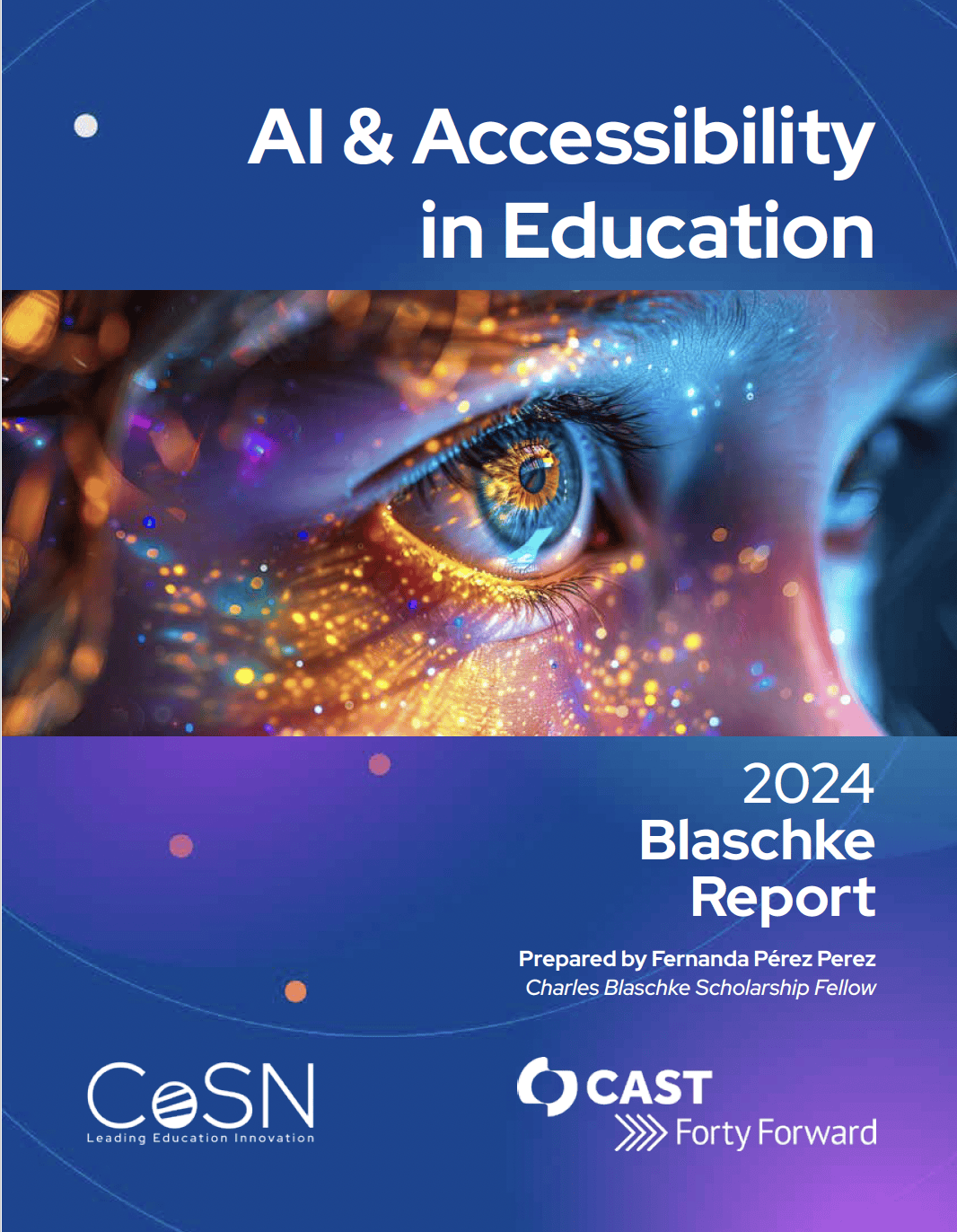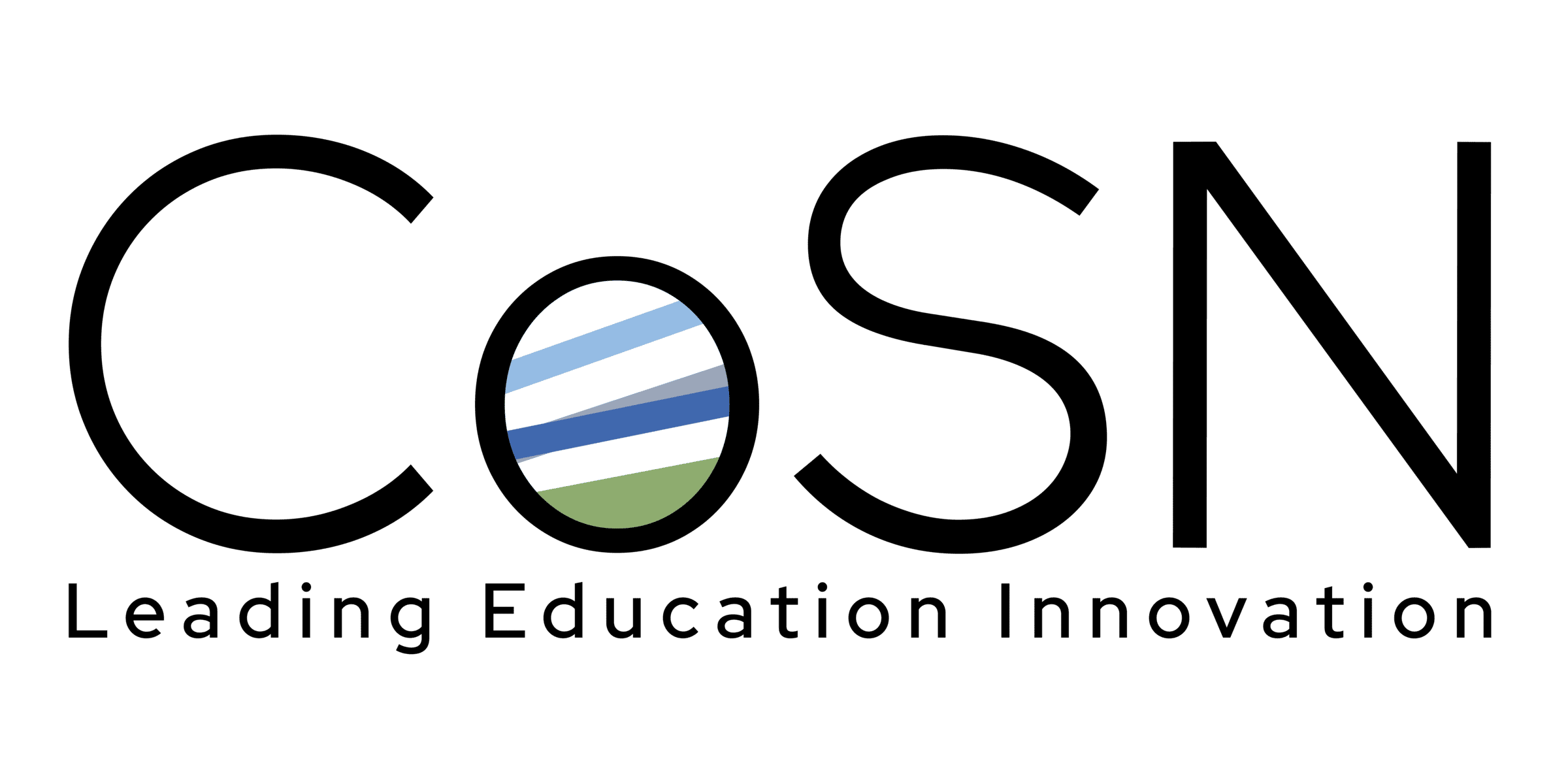AI & Accessibility in Education

Executive Summary
This report explores the transformative potential of artificial intelligence (AI) to enhance educational accessibility and support for students, particularly those with disabilities. As AI technologies like Generative AI (GenAI) and assistive tools become increasingly prevalent in educational settings, it is crucial to understand both their benefits and limitations.
Key Findings:
-
Potential of AI for Accessibility:
- AI tools can significantly improve personalized learning by tailoring educational content to meet the unique needs and preferences of each student, especially those with disabilities. For example, text-to-speech software, speech recognition systems, and AI-integrated augmentative and alternative communication (AAC) tools enhance the learning experience for students with diverse needs.
- AI can alleviate teacher burnout by automating administrative tasks such as grading and attendance tracking, allowing educators to focus more on direct student interaction and support.
-
Use Cases and Examples:
- Case studies from various educational settings illustrate the practical applications of AI in enhancing accessibility. For instance, AI tools have been used to create learning materials, facilitate communication for students with speech disabilities, and develop accessible math assessments for blind students.
-
Challenges and Risks:
- Despite its potential, AI implementation in education comes with challenges such as data privacy concerns, algorithmic bias, and limitations in personalized learning. AI systems must be created by diverse people and to avoid inaccuracies and ensure true representation, particularly for students with disabilities.
- Ensuring that AI tools are designed and implemented with accessibility in mind is crucial to avoid exacerbating existing inequalities.
-
Policy and Frameworks:
- This report highlights the importance of policy frameworks and guidelines to ensure the safe and ethical use of AI in education. Key policies include the Americans with Disabilities Act (ADA) and to Title II (Nondiscrimination on the Basis of Disability in State and Local Government Services, 2024), which require state and local government entities to provide fully accessible digital resources.
- The Universal Design for Learning (UDL) framework provides a guiding principle for creating inclusive educational environments that cater to all students' needs, interests, and preferences.
-
Recommendations:
- This report proposes a three-level solution for safe GenAI implementation, focusing on short-term actions like professional development, medium-term actions such as ensuring accessibility for special education students, and long-term goals of universal access to AI tools.
- Ongoing collaboration among educators, policymakers, and technology developers is essential to navigate the complexities of AI in education effectively.
Conclusion:
The integration of AI in education holds significant promise for enhancing accessibility and support for all students, particularly those with disabilities. However, realizing this potential requires careful planning, ethical considerations, and a commitment to equity. By prioritizing inclusive design, robust policies, and continuous professional development, we can create a future where AI empowers all students to succeed in an accessible and inclusive educational landscape.
This report serves as a comprehensive guide for educators, district leaders, and policymakers, providing insights into the benefits and challenges of AI in education and offering practical strategies for its effective and ethical implementation.
Author: Fernanda Pérez Perez, 2024 Charles Blaschke Scholarship Fellow
The full report is available to CoSN Members. Download the report here.
Read the accompanying blog series:
Read the first blog here: Three Strategies to Enhance Accessibility Using AI
Read the second blog here: Risk and Reward: Artificial Intelligence in K–12 Education
Learn more about the Charles Blaschke EdTech Fund
This report was made possible with the support of CAST.



